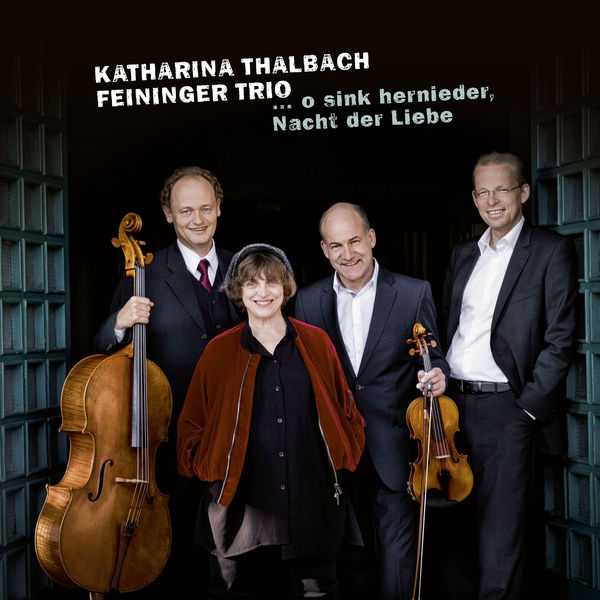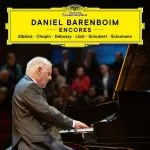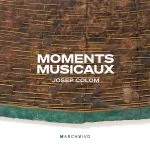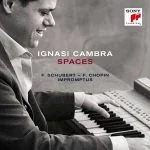

Composer: Frédéric François Chopin, Franz Peter Schubert
Performer: Feininger Trio, Katharina Thalbach
Format: FLAC (tracks)
Label: Avi Music
Catalogue: AVI8553077
Release: 2019
Size: 520 MB
Recovery: +3%
Scan: yes
01. Schubert: Adagio for Piano Trio in E-Flat Major, D. 897
02. Bachmann: Erklär’ mir Liebe
03. Rilke: Die Liebenden
04. Rilke: Liebes-Lied
05. Chopin: Piano Trio in G-Minor, Op. 8: I. Allegro con fuoco
06. Lasker-Schüler: Fortissimo
07. Benn: Liebes-Lied
08. Lasker-Schüler: Die Liebenden
09. Lasker-Schüler: Ouvertüre
10. Benn: Noch einmal
11. Chopin: Piano Trio in G minor Op. 8: II. Scherzo. Vivace – Trio
12. Chopin: Piano Trio in G minor Op. 8: III. Adagio. Sostenuto
13. Benn: Auf deine Lider senk’ ich Schlummer
14. Lasker-Schüler: Mein Tanzlied
15. Benn: Rosen
16. Lasker-Schüler: Als ich Tristan kennen lernte
17. Lasker-Schüler: An den Gralprinzen
18. Lasker-Schüler: An den Prinzen Tristan
19. Lasker-Schüler: An den Ritter aus Gold
20. Lasker-Schüler: An Tristan
21. Lasker-Schüler: Abschied
22. Lasker-Schüler: Madonna
23. Lasker-Schüler: Botte wo?
24. Lasker-Schüler: Was hat die Lieb mit der Saison zu tun
25. Chopin: Piano Trio in G minor Op. 8: IV. Finale (Allegretto)
26. Shakespeare: Sonett No. 23
27. Shakespeare: Sonett No. 43
28. Shakespeare: Sonett No. 56
29. Brecht: Die Liebenden
.O night of love, descend upon us”: This motif from Wagner’s Tristan and Isolde sets the musical and lyrical mood for the selection of pieces and poems in the Feininger Trio’s programme, performed for the first time at the Baden-Baden Easter Festival. The actress and recitateur Katharina Thalbach joins the Feininger Trio in this project.
The goal in selecting the poems was to find a mood similar to Schubert’s Notturno and Chopin’s Piano Trio Op. 8: texts that could establish a lyrical dialogue with those pieces. How can we grasp the great subject of love and death? How can we associate language with music, but without relegating language to a subordinate role? How can a series of poems tell their own story while at the same time highlighting the expression conveyed by the music, which is still the precondition for this musical-poetical programme? Start at the beginning: Following Schubert’s Adagio (later renamed Notturno ), the theme of love is addressed in Ingeborg Bachmann’s poem Erklär mir Liebe (“Explain love to me”) and in Rilke’s Liebes-Lied (“Love Song”), which features metaphors associated with string music. Allegro con fuoco is the tempo marking of the first movement in Chopin’s Piano Trio, Op. 8. As if the poem had been listening to the music, it starts out with a “Fortissimo”, the title of Elke Lasker-Schuler’s poem Du spieltest ein ungestümes Lied (“You played me a wild song”)…. (Excerpt from the booklet notes by Brigitte Landes).
Katharina Thalbach is a member of the German Film Academy, of the Hamburg Free Academy of the Arts, and of the Berlin Academy of the Arts. She has been awarded a number of outstanding German prizes including the Grimme Television Prize and the Berliner Zeitung Drama Critics’ Prize; in 2015 she received the German Federal Cross of Merit, and in 2018 she was knighted Officier de l’Ordre des Arts et des Lettres in Paris.
The Feininger Trio was founded in 2005 by pianist Adrian Oetiker and two members of the Berlin Philharmonic: Christoph Streuli (violin) and David Riniker (cello). They named their piano trio after painter, designer and Bauhaus co-founder Lyonel Feininger (1871-1956), whose former atelier in the Berlin district of Zehlendorf was located in the vicinity of the room where the trio now rehearses.
The Feininger Trio has performed in a variety of venues in Berlin, Hamburg, Salzburg, and Munich, and has participated in a number of recital series; they are also regularly invited to the Baden-Baden and Zurich festivals, and performed at the Prague Spring Festival for the first time in 2019.
The ensemble has started to focus its programmes, for example, devoting a series of recitals to music from Bohemia, as documented in their 2013 release on the CAvi-music label with works by Suk, Smetana and Dvorak.



